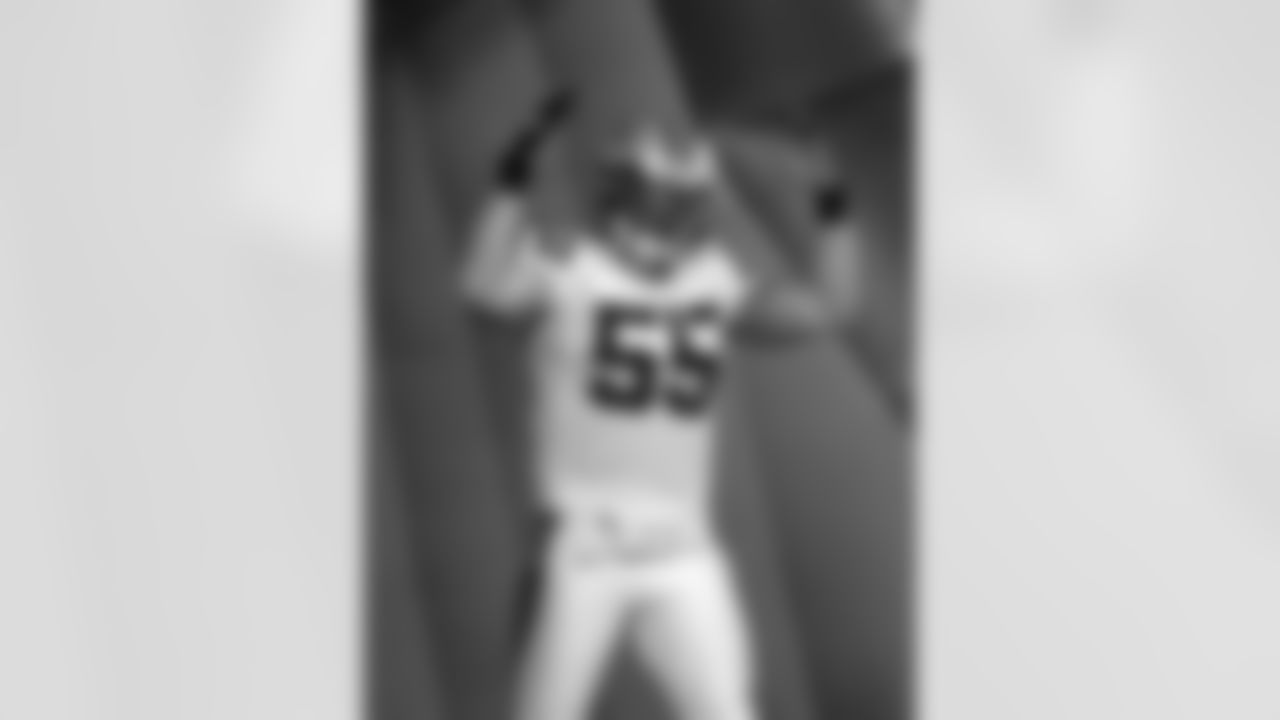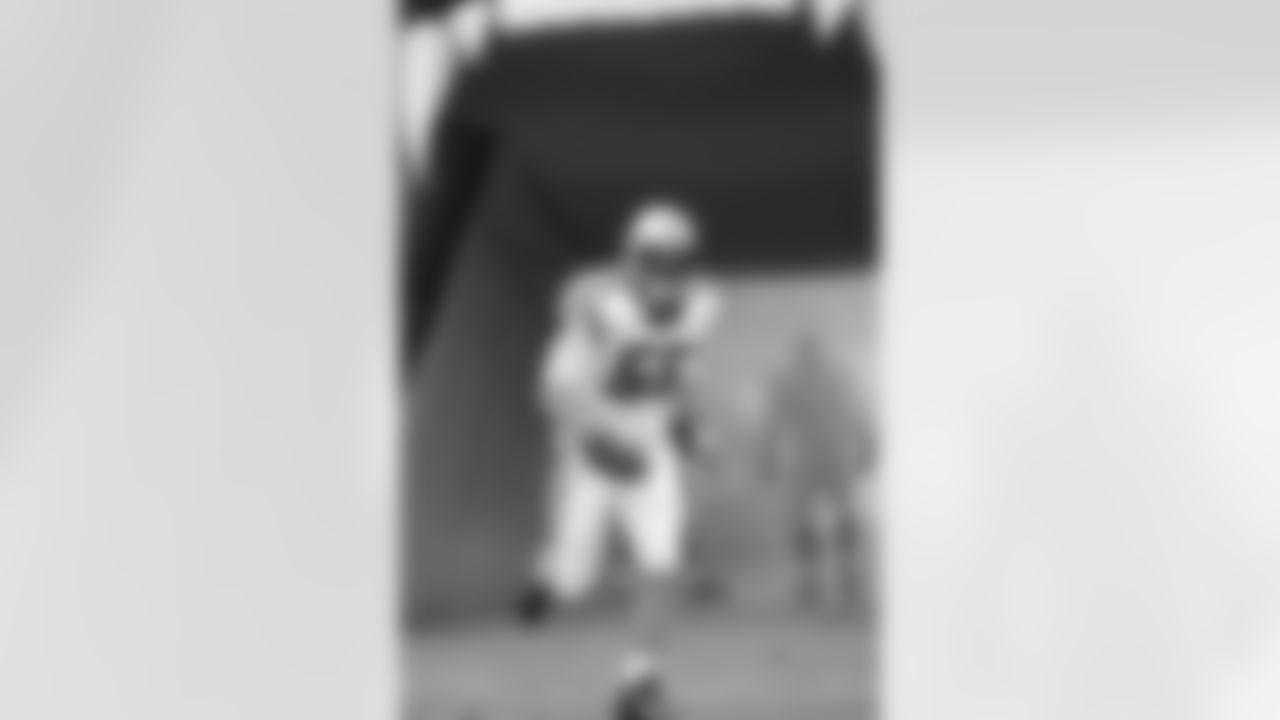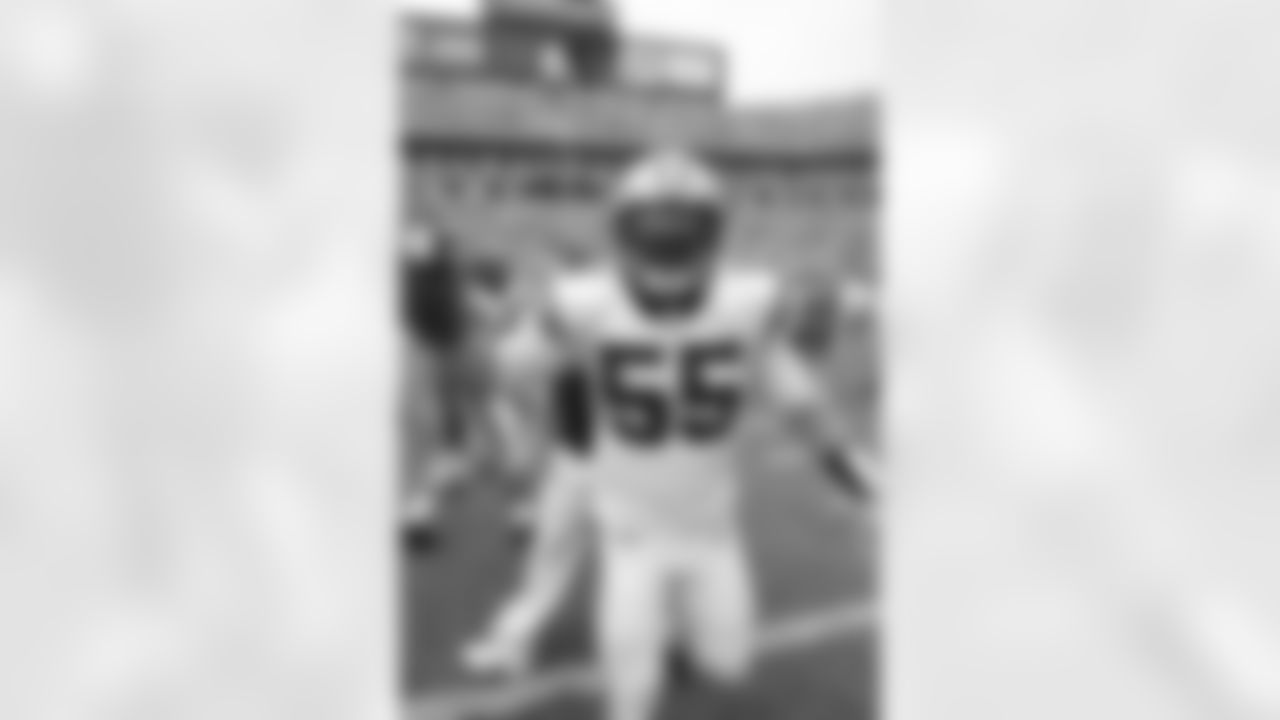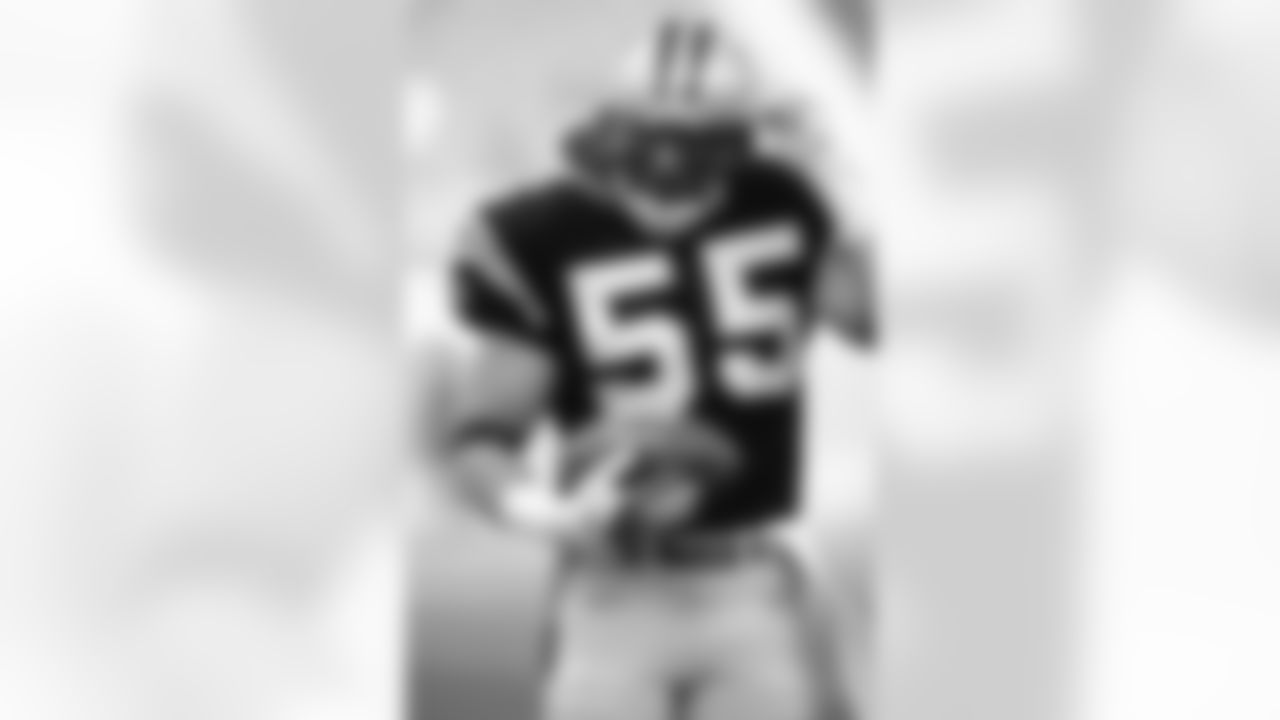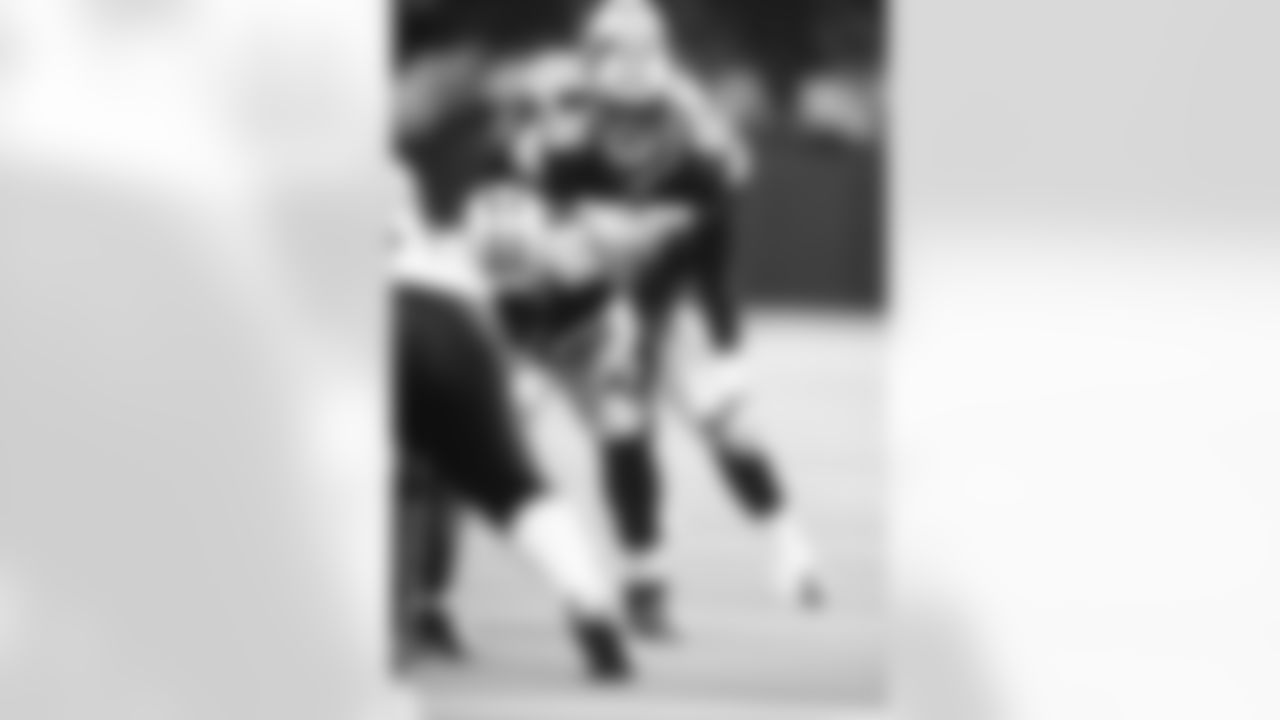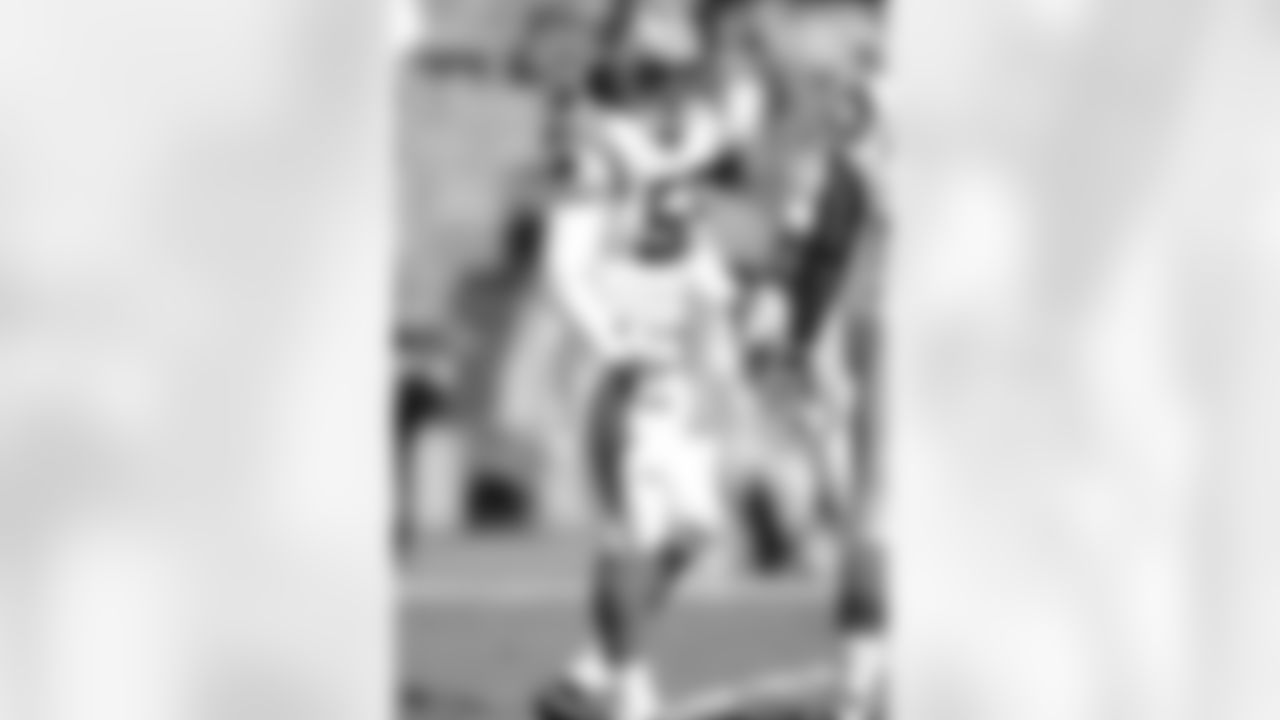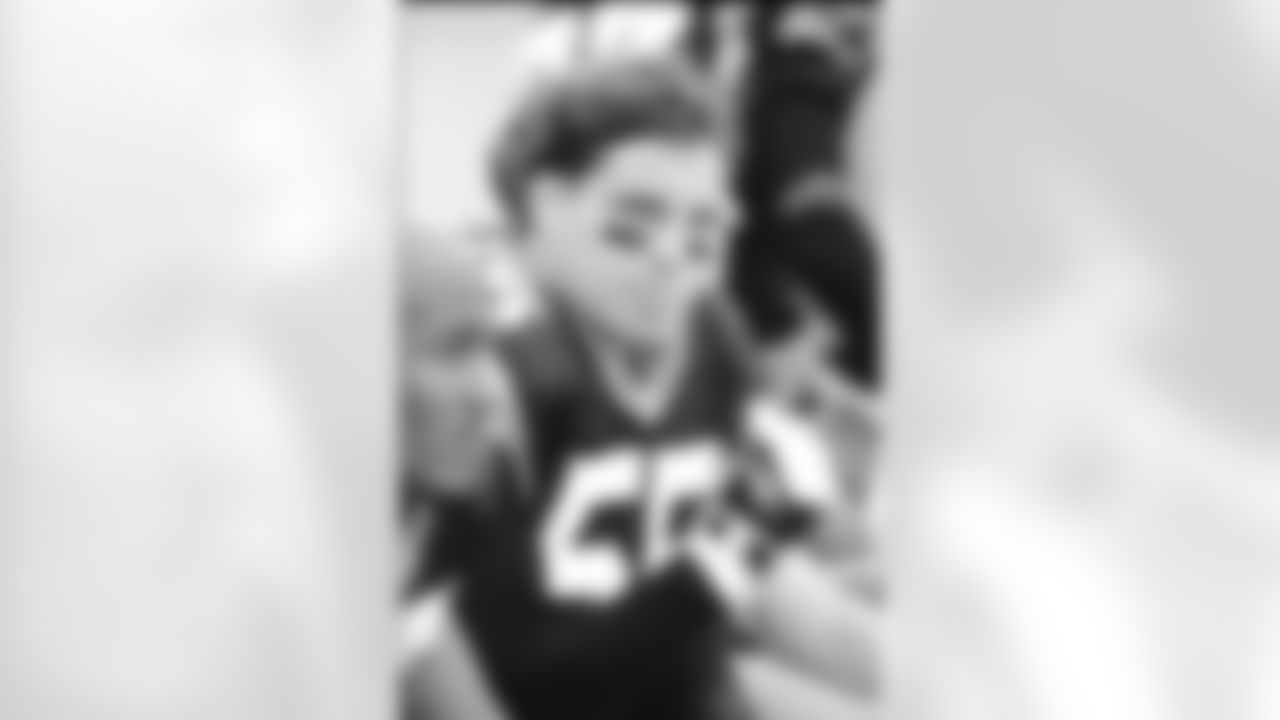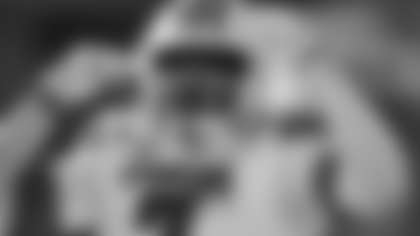CHARLOTTE — When Panthers assistant general manager Dan Morgan reads the scouting report, he can't help but like what he hears.
"Love the motor. Really instinctive. Smart on the field. Gets people lined up and sets the defense. Explosive. A lot of range. Relentless."
That's not a player he's looking at in next year's draft. That was Morgan when asked how he'd have evaluated Dan Morgan coming out of college.
That player was the Panthers' first-round pick in 2001, part of a franchise-defining weekend which helped propel the team to the Super Bowl (as part of a draft class that included Kris Jenkins and Steve Smith Sr.). But that player was also one of the best to play his position in college, and he's being recognized for it now.
Morgan is being inducted into the College Football Hall of Fame Tuesday in Las Vegas, honoring his stellar career as one of the top middle linebackers at one of the game's top middle linebacker factories — the University of Miami.
Morgan was the Hurricanes' first freshman to start at linebacker since Ray Lewis. By his sophomore year, he was a captain. By his senior year, he won all the trophies named for defensive legends (Butkus, Nagurksi, Bednarik), and was a unanimous first-team All-American.
Among the many highlights he recalled, one of the sweetest was a victory over Florida State in 2000.
The Seminoles had beaten the Hurricanes in five straight games — including an embarrassing 47-0 decision Morgan's freshman year — and were coming off a national championship.
But the Hurricanes roared out to a 17-0 lead just before halftime, when Seminoles quarterback Chris Weinke (a future Panthers teammate) tried to lead a rally. But at the 2-yard line, Morgan drifted back into coverage, and picked off the pass intended for a tight end, stopping the scoring drive. Florida State would come back to make it close, and lose on the third iteration of Wide Right, but the play summed up much of what made Morgan a special player.
Recognition. Awareness. Instincts.
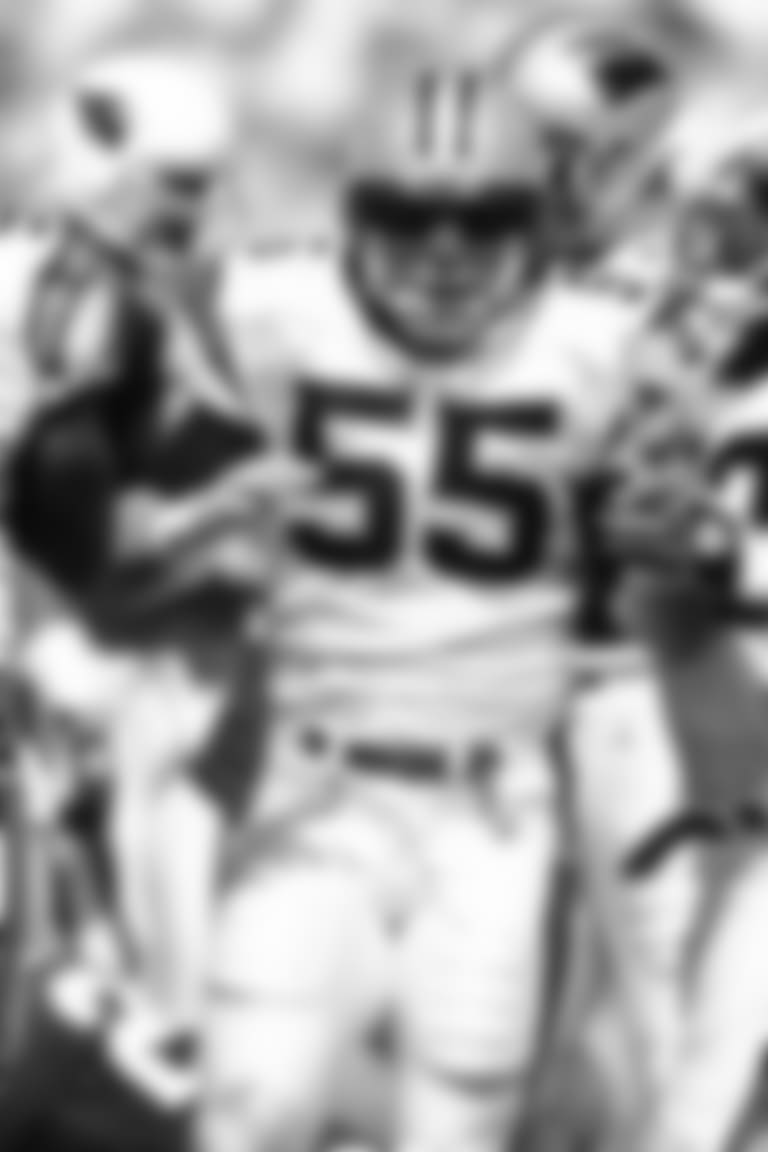
"I think that was the game that really put me in the national spotlight," Morgan said.
In addition to the pick, Morgan had 15 tackles and forced a fumble that day, showing the kind of impact player he was in college. And while the plays were certainly impressive, it was the way Morgan stacked them up that separated him from others the longer he stayed in the college game.
"It was just instilled in me since I was a kid, not to let anyone beat me to the ball," Morgan said. "I was never going to let anyone outwork me."
His NFL career was star-crossed. There were highs from helping the Panthers go from last in the league in defense in 2001 to second in 2002, to a record 18 tackles in the Super Bowl, to the lows including a litany of injuries which derailed him. But he has since transitioned to the front office, where his commitment to the daily repetitions that create success is serving him well.
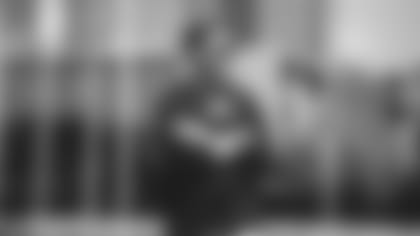
He was brought here in May as general manager Scott Fitterer's lieutenant, going back to a relationship formed when Morgan was getting his start in the business.
And while Fitterer recognized early on that Morgan knew football, he also saw something in the former linebacker that would set him apart in his new career.
Fitterer joked that he "would have to grade him down, character-wise," but the two have grown close since Morgan was an intern in Seattle and Fitterer was rising through the college scouting ranks.
There have been a number of players around the league who dabble in personnel after their playing days, but the jobs are not the same. It's one thing to know how you did a thing well. It's another to see the necessary qualities in others, especially if they aren't as talented as they used to be.
There's also a lot of unglamorous work that has to be done, that not every player who made millions and can retire comfortably wants to sit in a Courtyard (if you're lucky) in Lincoln, Neb. or Mobile, Ala. (if you're lucky) and fill out detailed reports. It's a lot of paperwork, and not every former player aspires to a life of paperwork.
"It's harder than most players realize," Fitterer said. "And it's not because they can't evaluate, because a lot of players recognize what you need on the field.
"It's about being willing to sit in that hotel room and grind out a ton of reports, and really being detailed. Dan's been great at that, and really took to that part of the job. It's not for everyone, but you could tell he had the work ethic for the job, and being around players as long as he had, you could tell he had the ability to identify them."
In a sense, it takes a lot of effort to find a guy just like him.
Like Morgan's own, Fitterer's evaluation of the former Miami linebacker was an off-the-charts positive one.
Fitterer didn't file a report on Morgan coming out of Miami in 2001, but the conversations they had about him in Seahawks meetings stuck with him.
"Honestly, the reports sounded a lot like the way we talk about Jaycee Horn," Fitterer said. "He was an alpha. Intense. There's a toughness there, and a football awareness. You could tell the way he did it was the right way every day. He was just a great, great college football player."
That's what NFL teams were looking for. In linebackers. And in scouts.
That's also what makes a Hall of Famer.
Morgan played middle linebacker for the Panthers from 2001-07. He spent seven seasons in the Seattle Seahawks personnel department and then was with the Buffalo Bills from 2018-21, most recently as Director of Player Personnel.



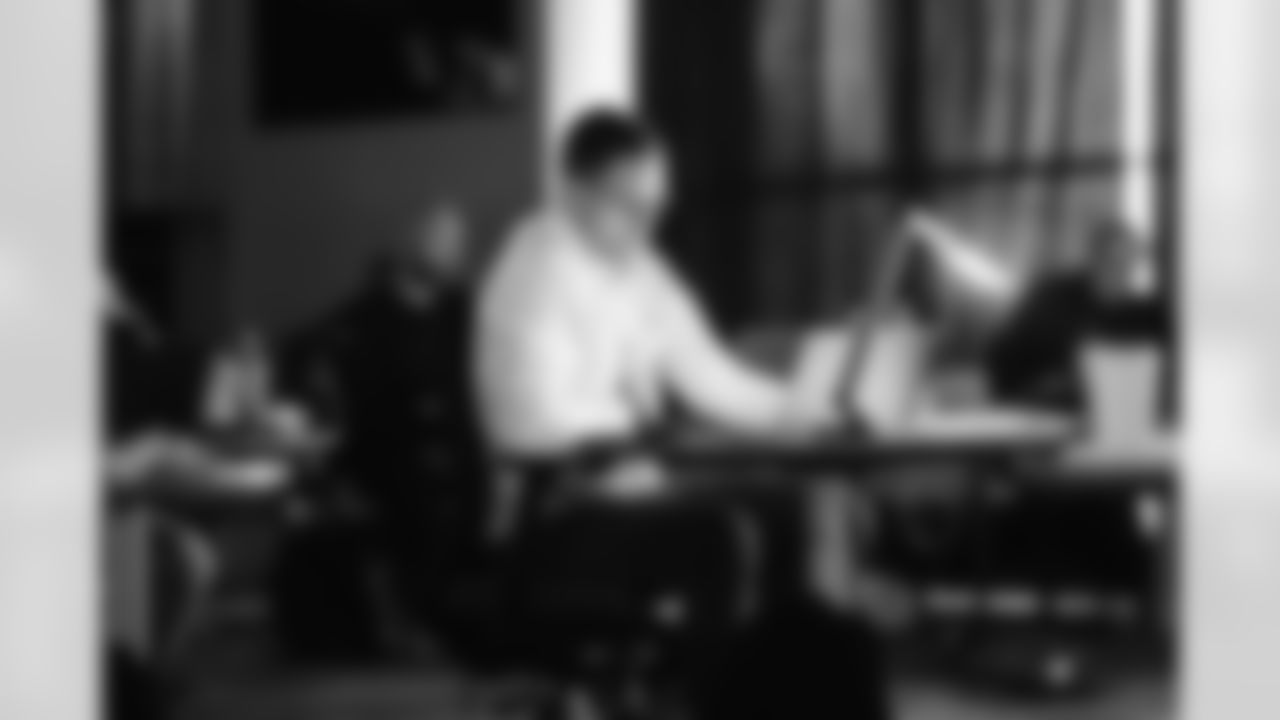

Scenes from the Buffalo Bills Draft Room during Rounds 2 and 3 of the 2021 NFL Draft at One Bills Drive on April 30, 2021. Photo by Sara Schmidle


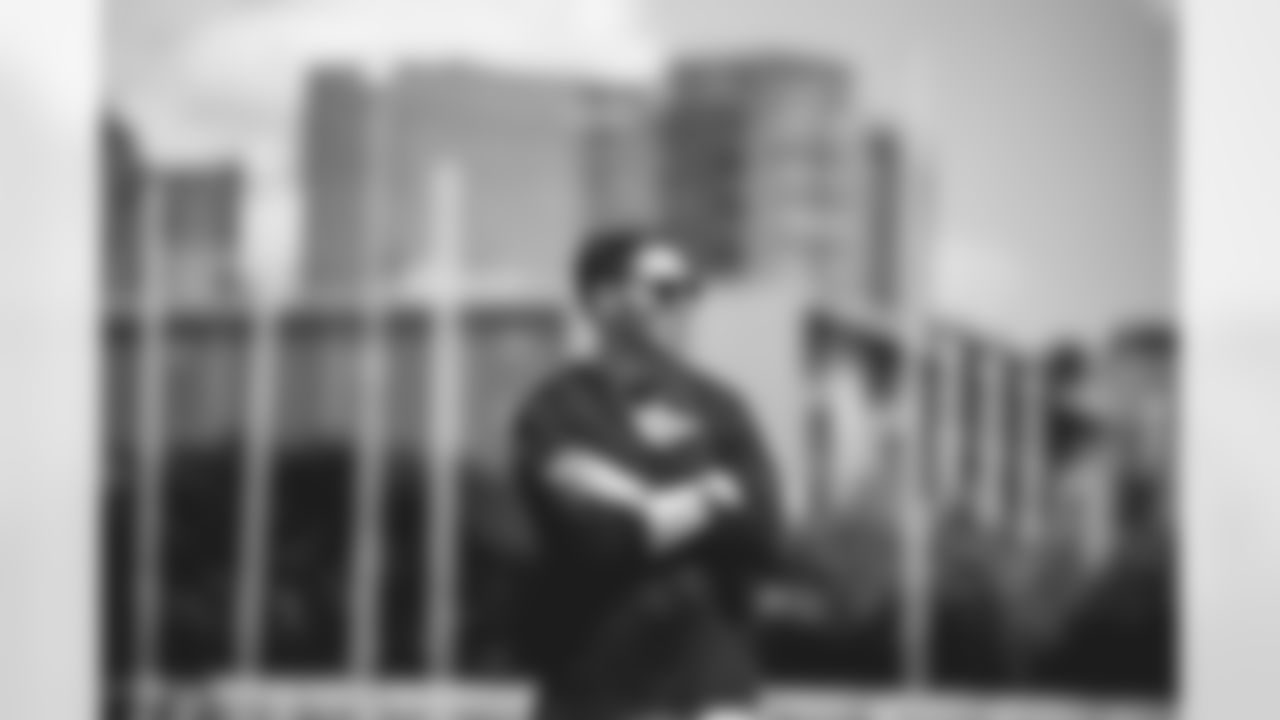
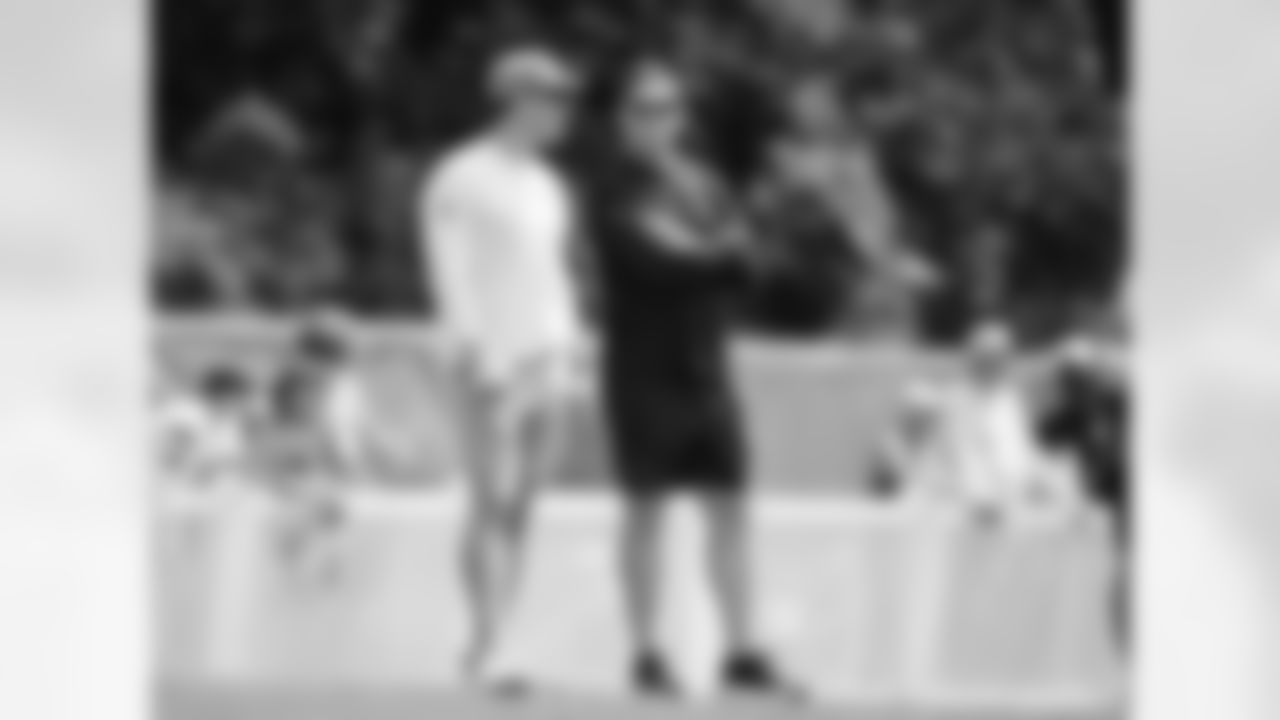


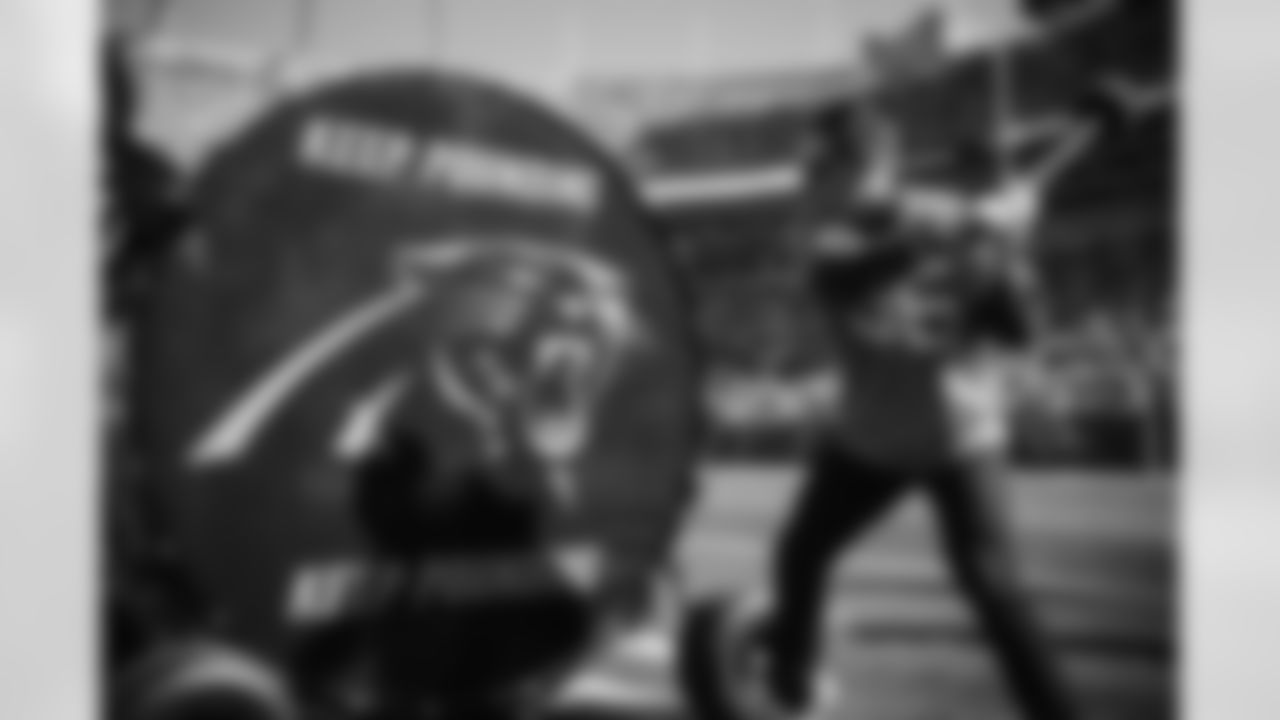
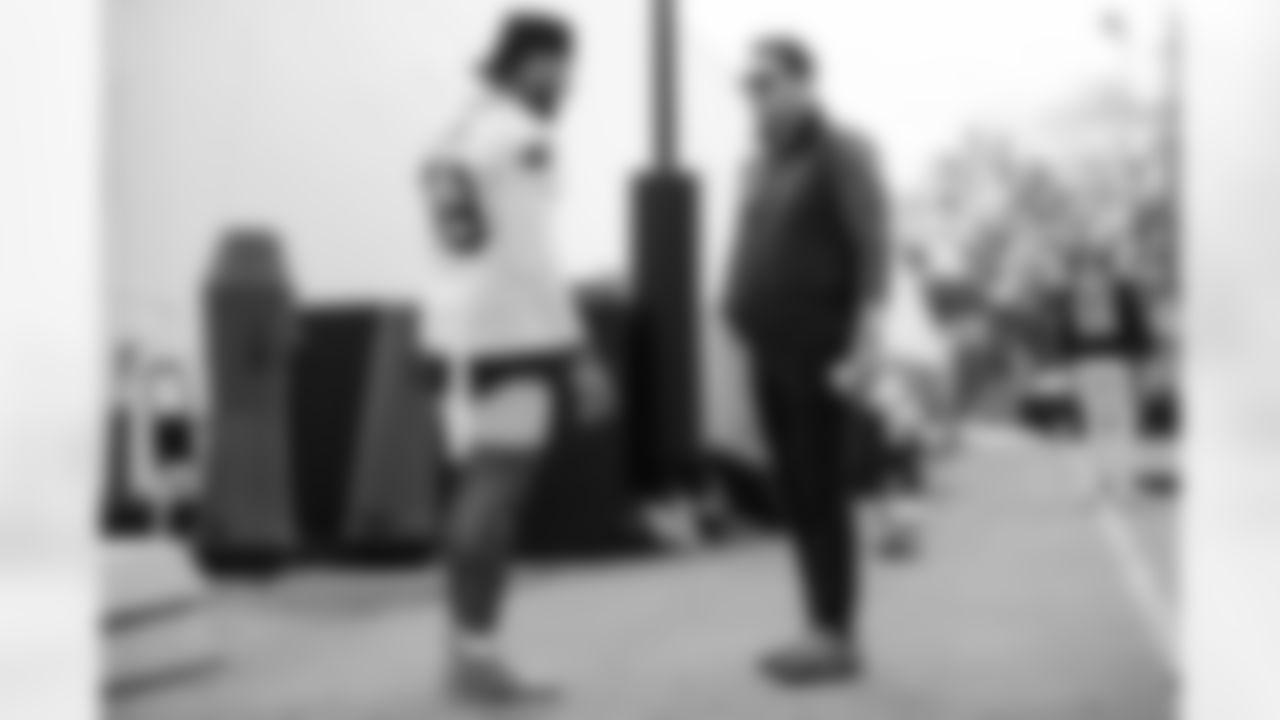
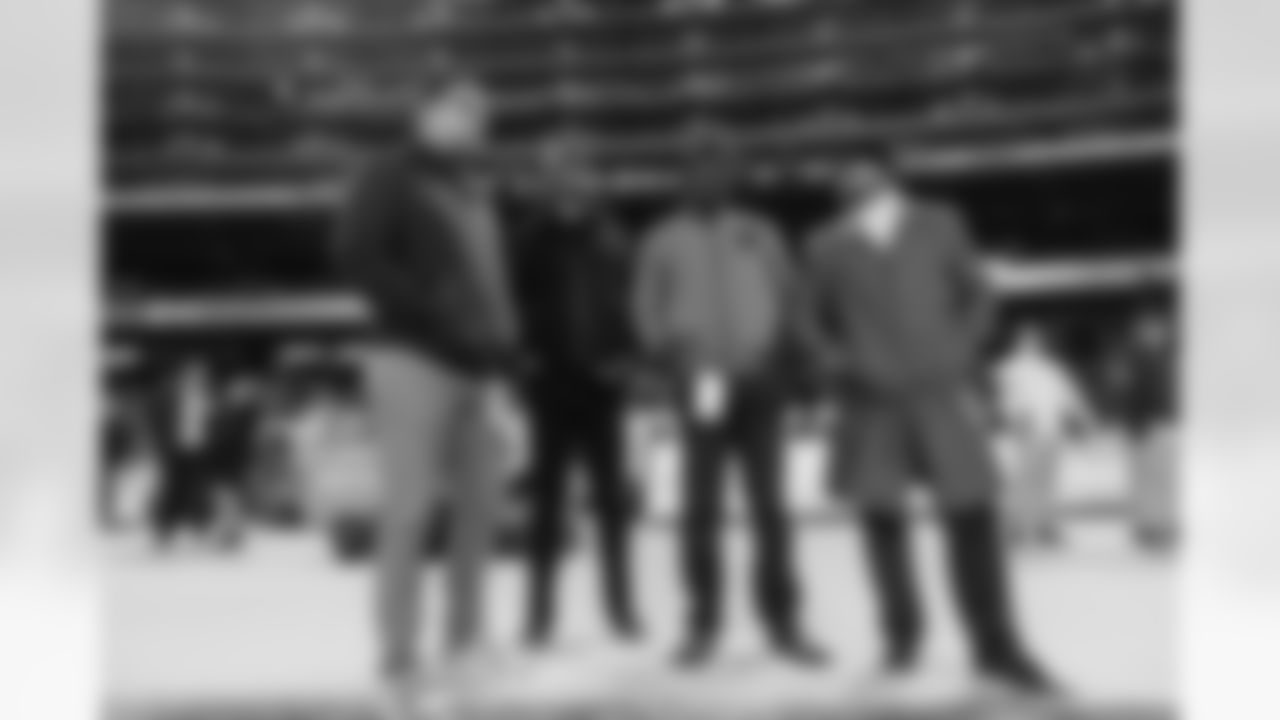


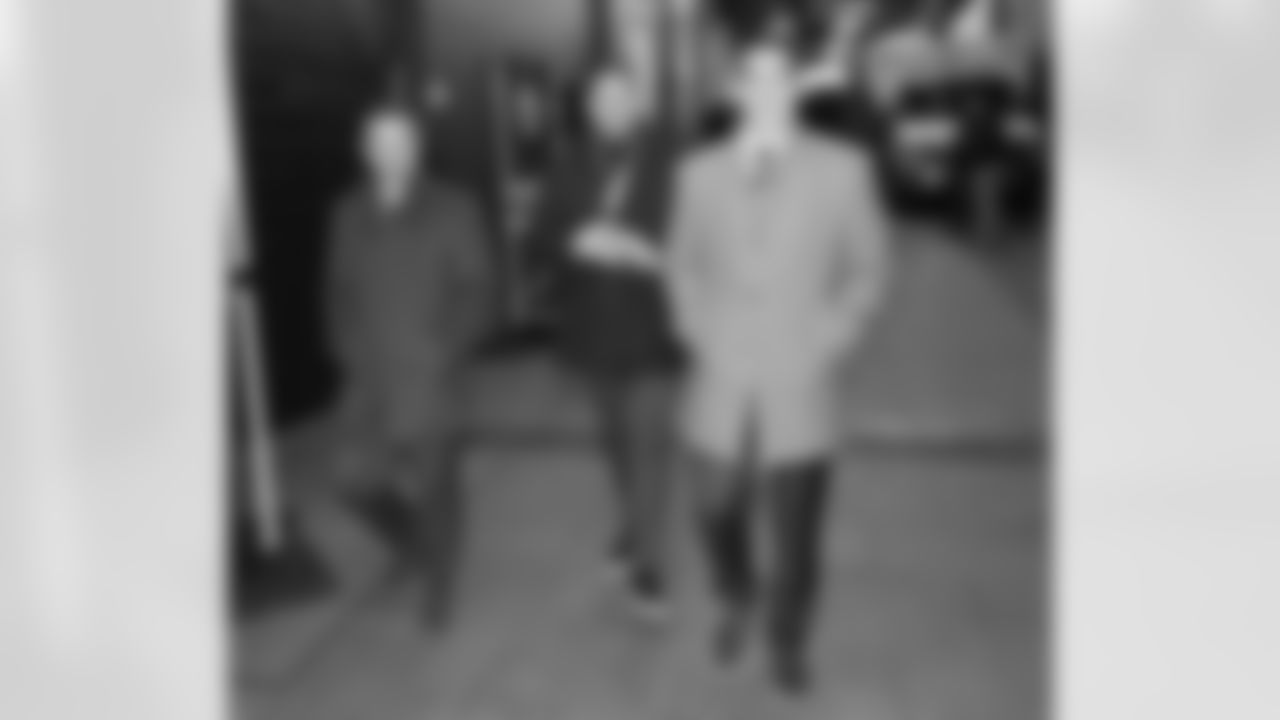
Brandon Beane, Dan Morgan, Joe Schoen. Buffalo Bills vs New York Jets, December 29, 2019 at New Era Field. Photo by Bill Wippert
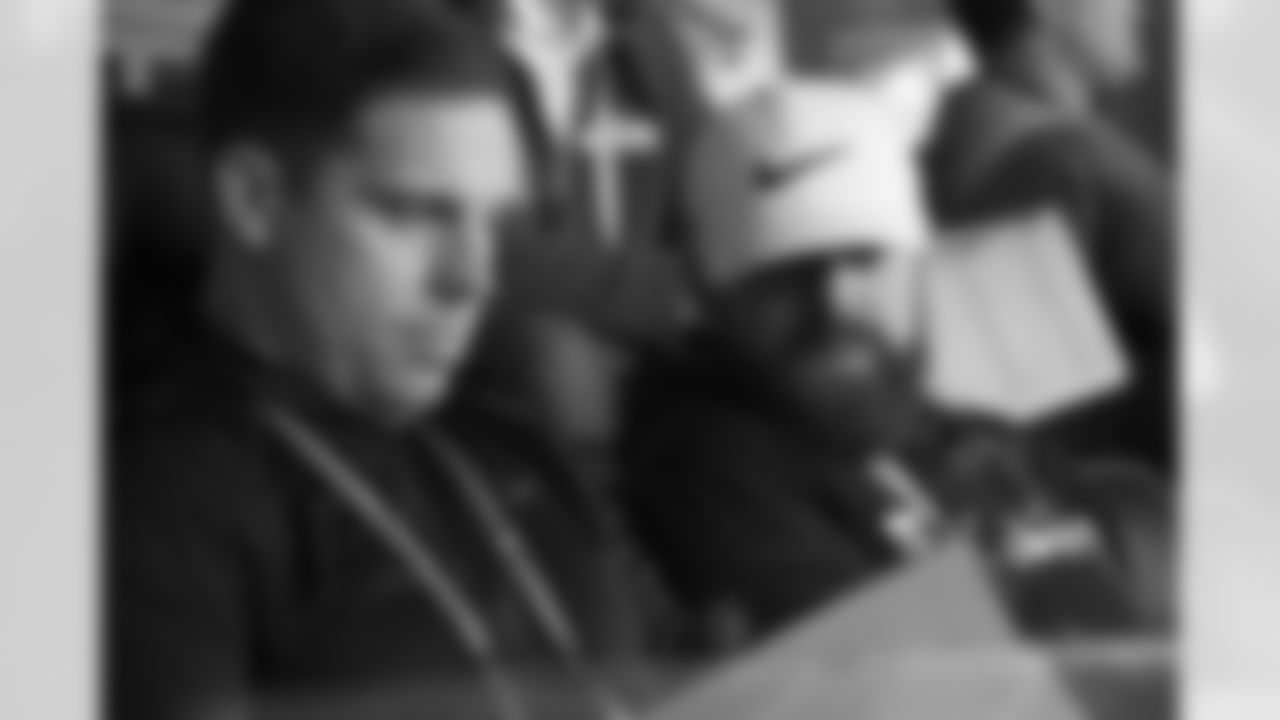

Scenes from the Buffalo Bills Draft Room during Rounds 2 and 3 of the 2021 NFL Draft at One Bills Drive on April 30, 2021. Photo by Sara Schmidle
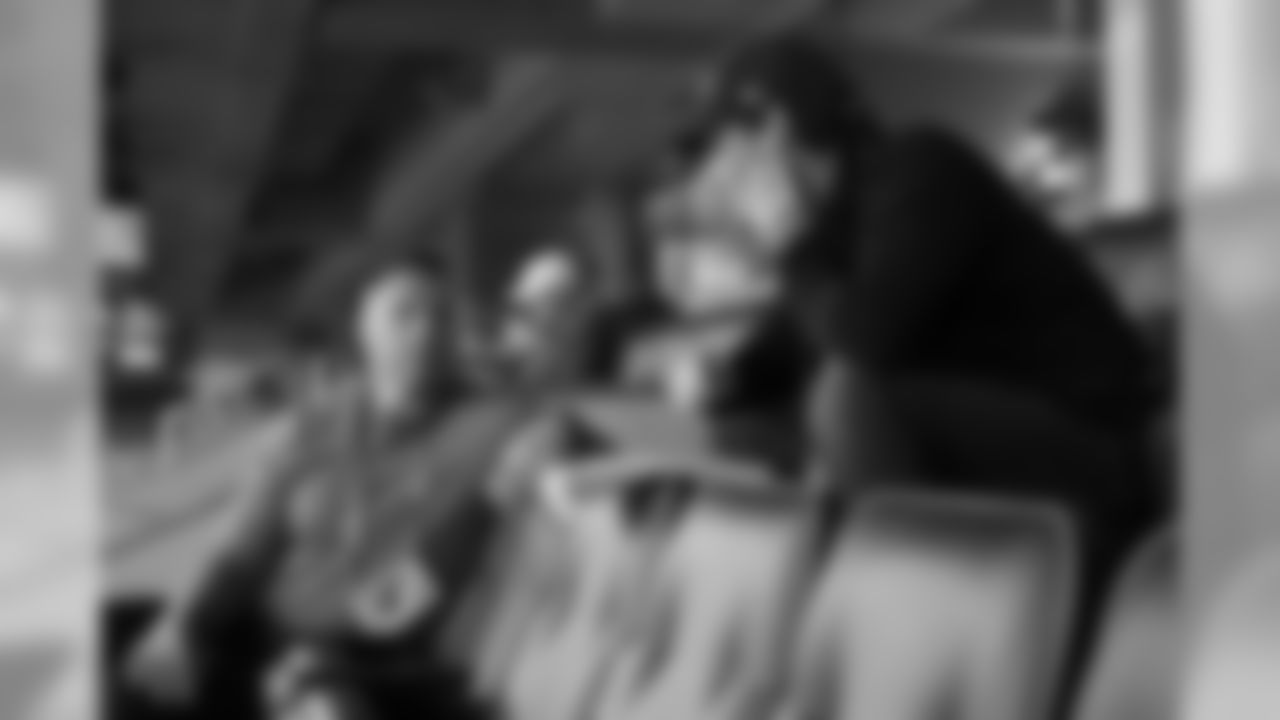
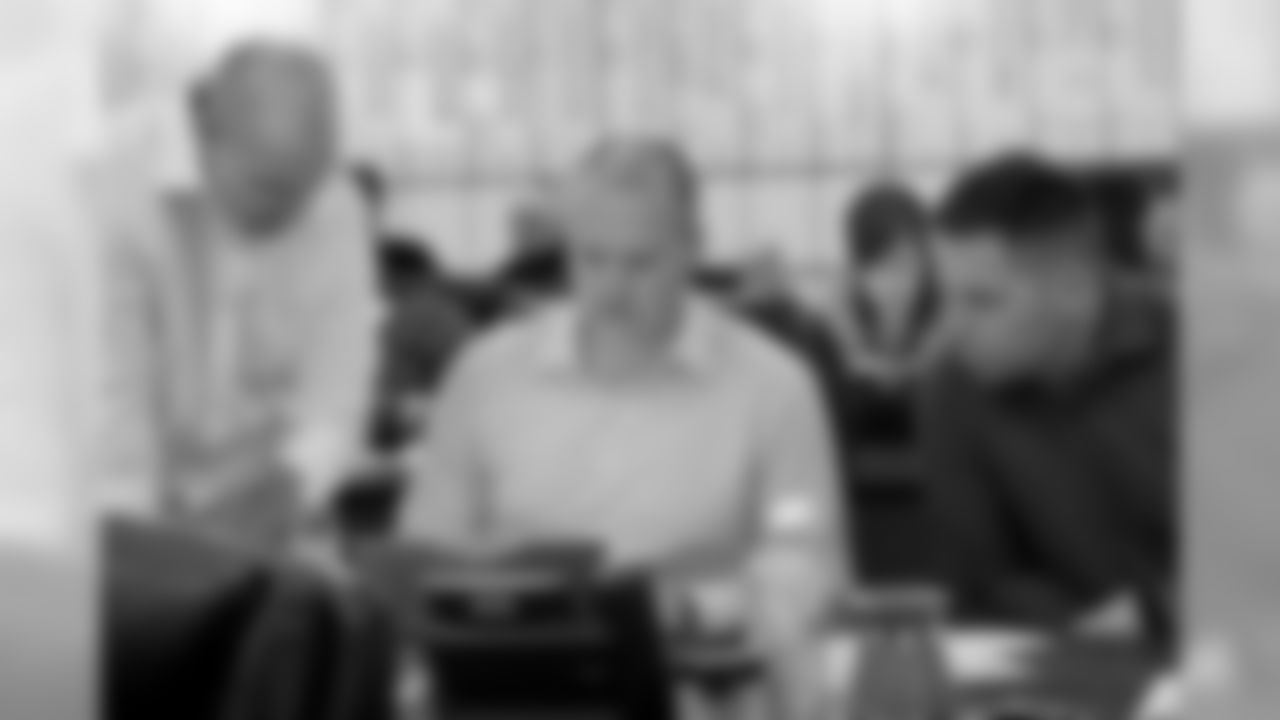
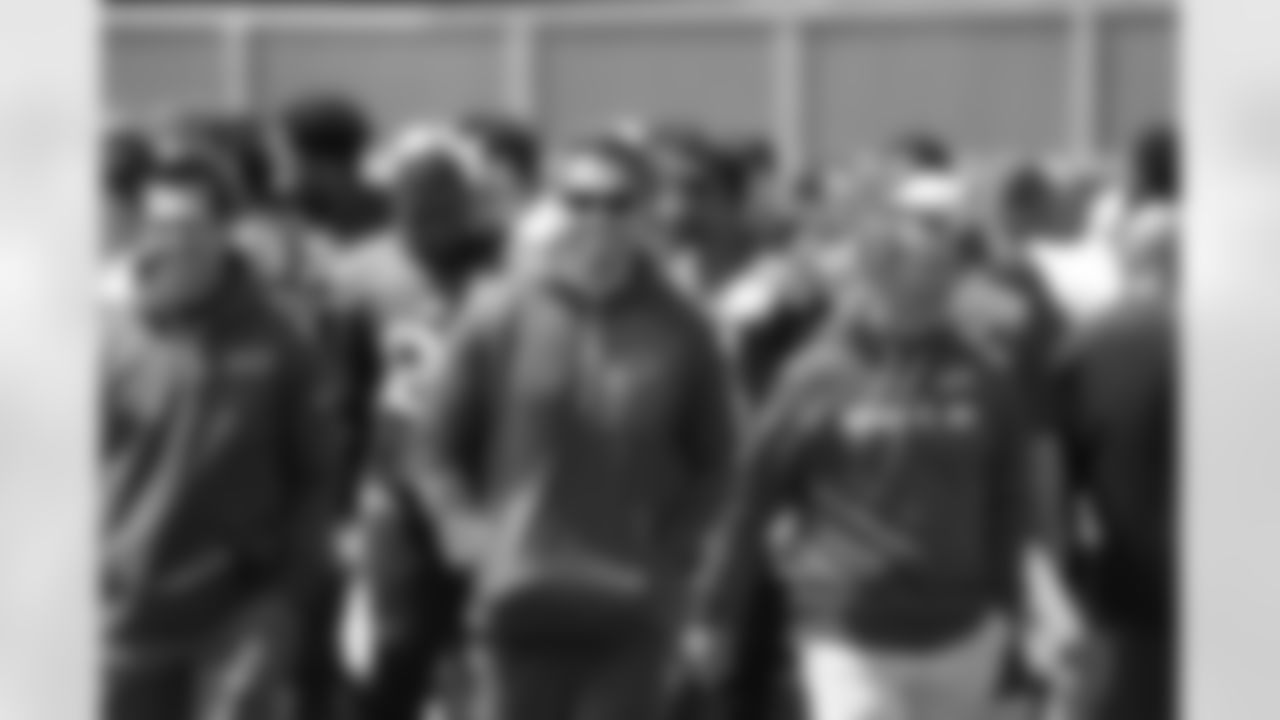
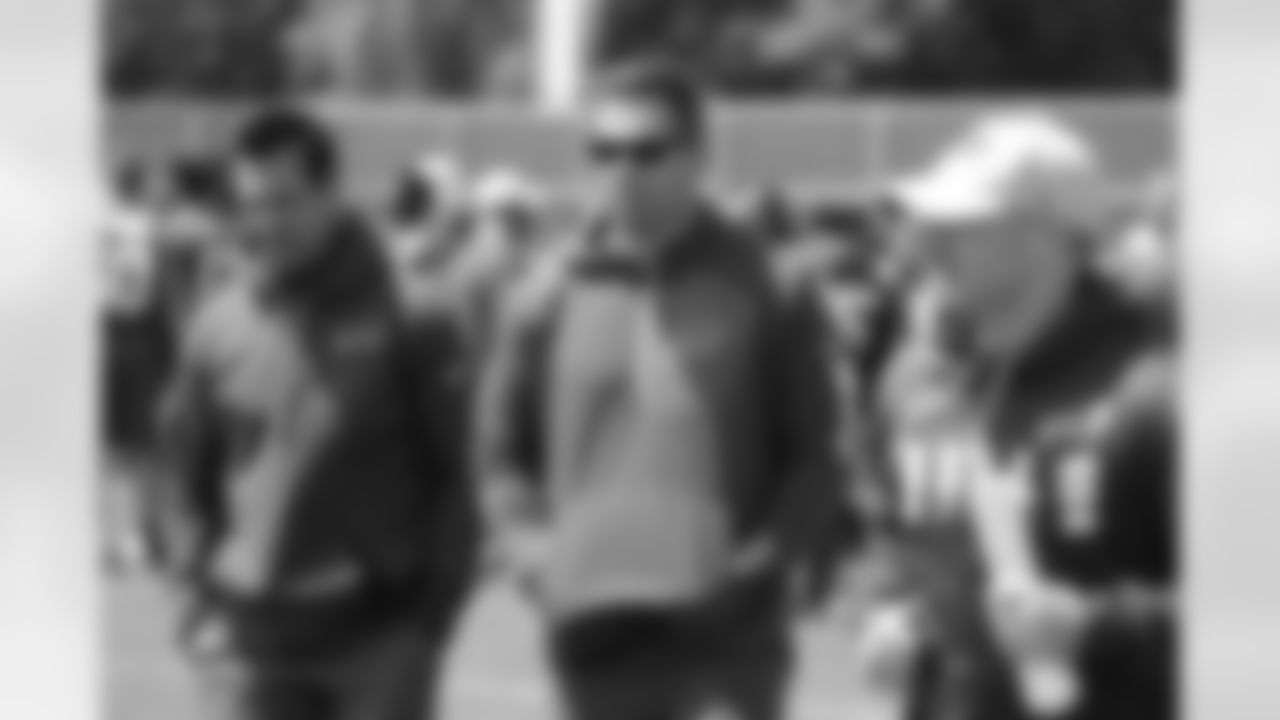
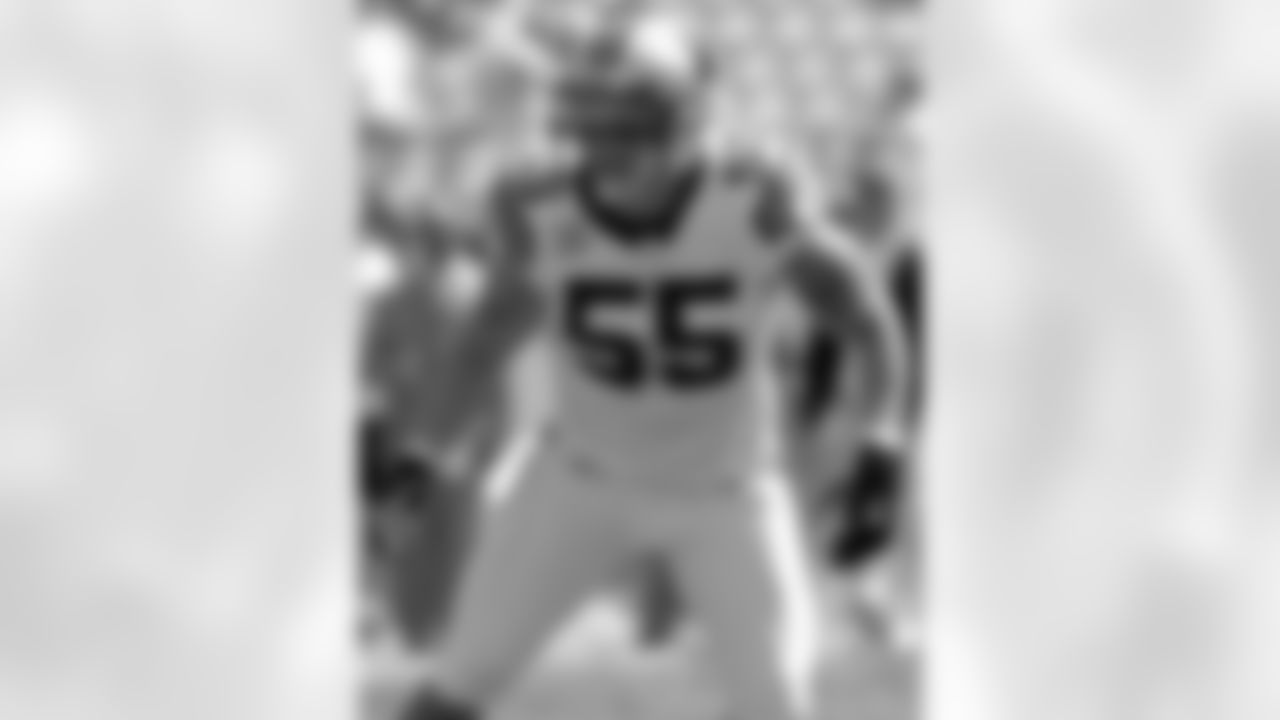
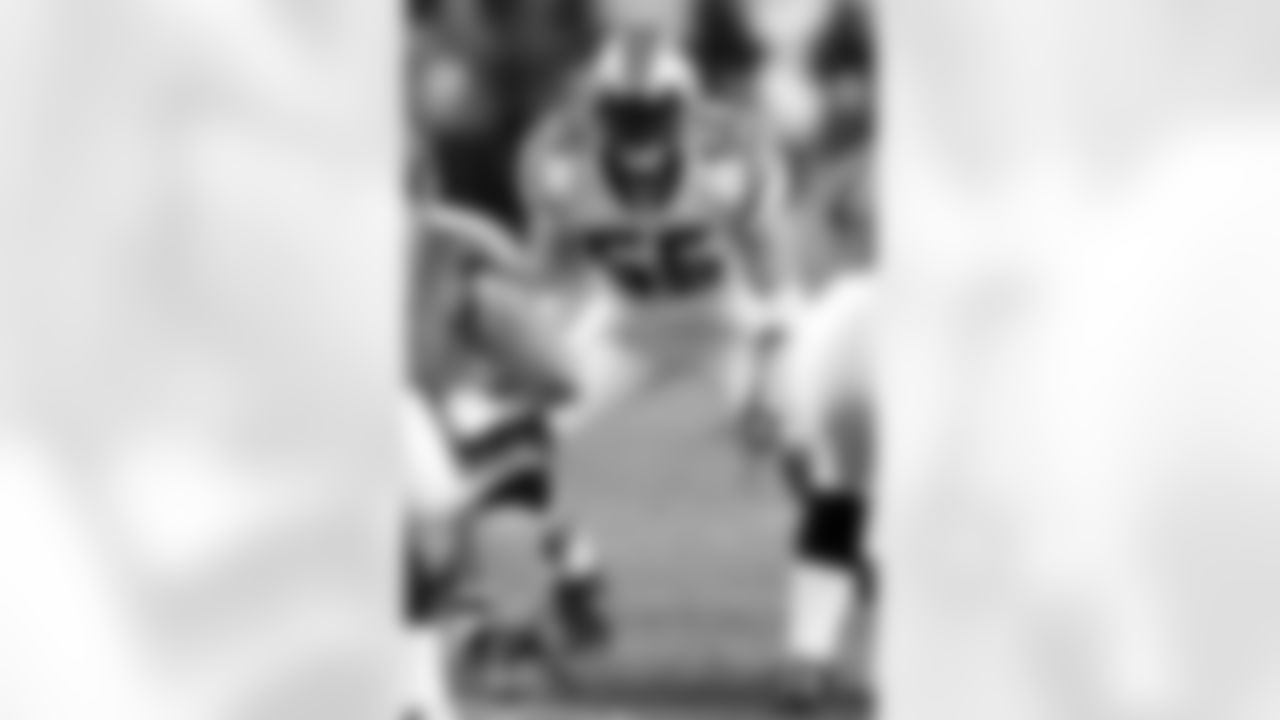
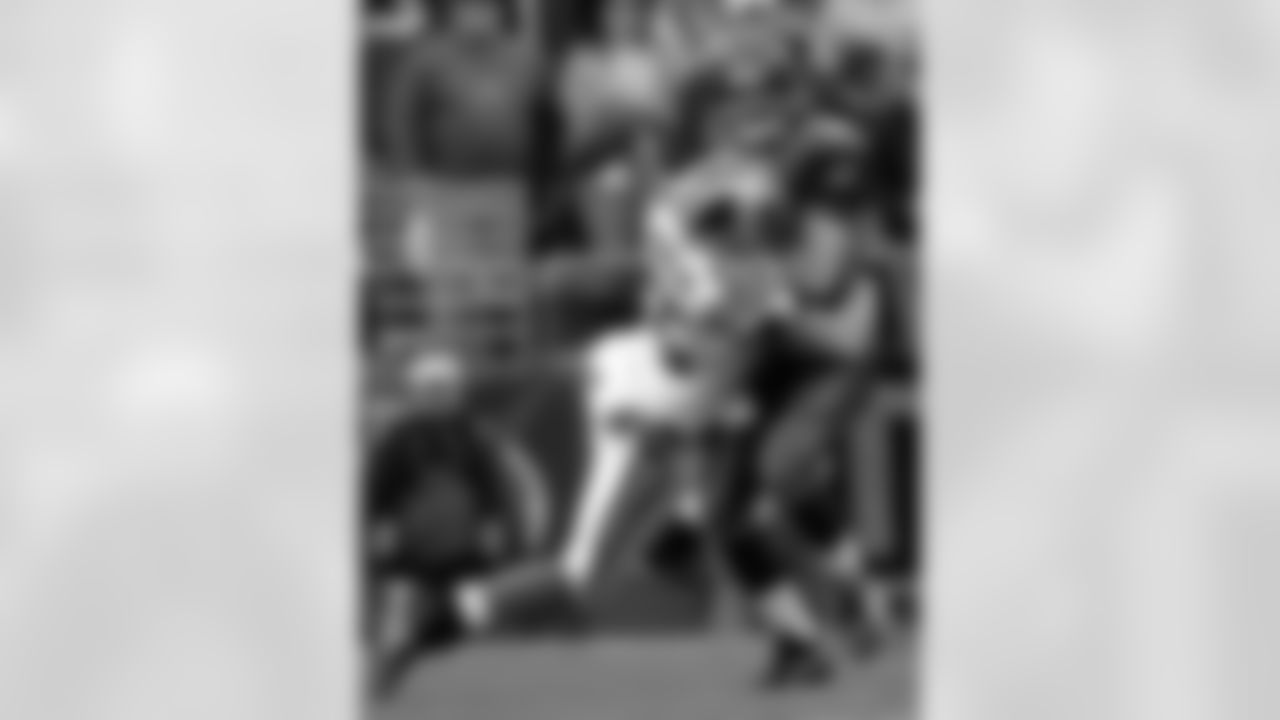
Seattle Seahawks' Matt Hasselbeck, right, is pressured by Carolina Panthers' Dan Morgan in the first quarter during their NFC Championship football game in Seattle, on Sunday, Jan. 22, 2006. (AP Photo/Ted S. Warren)
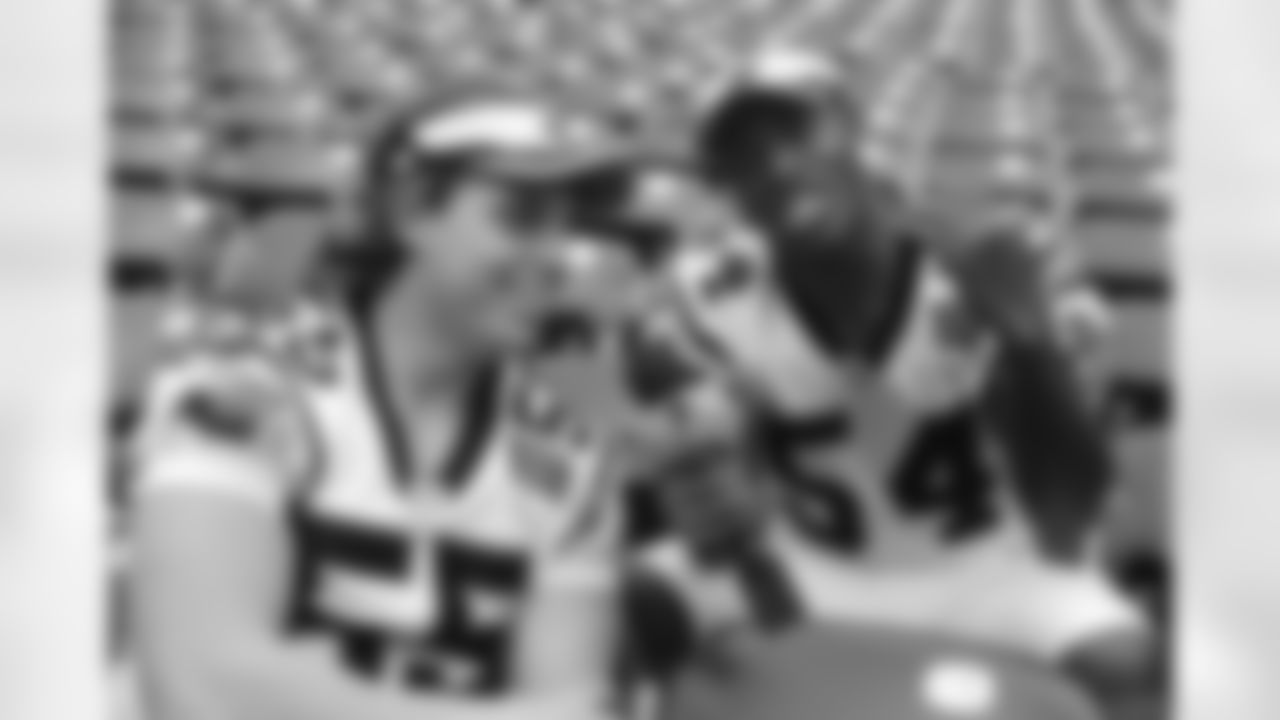
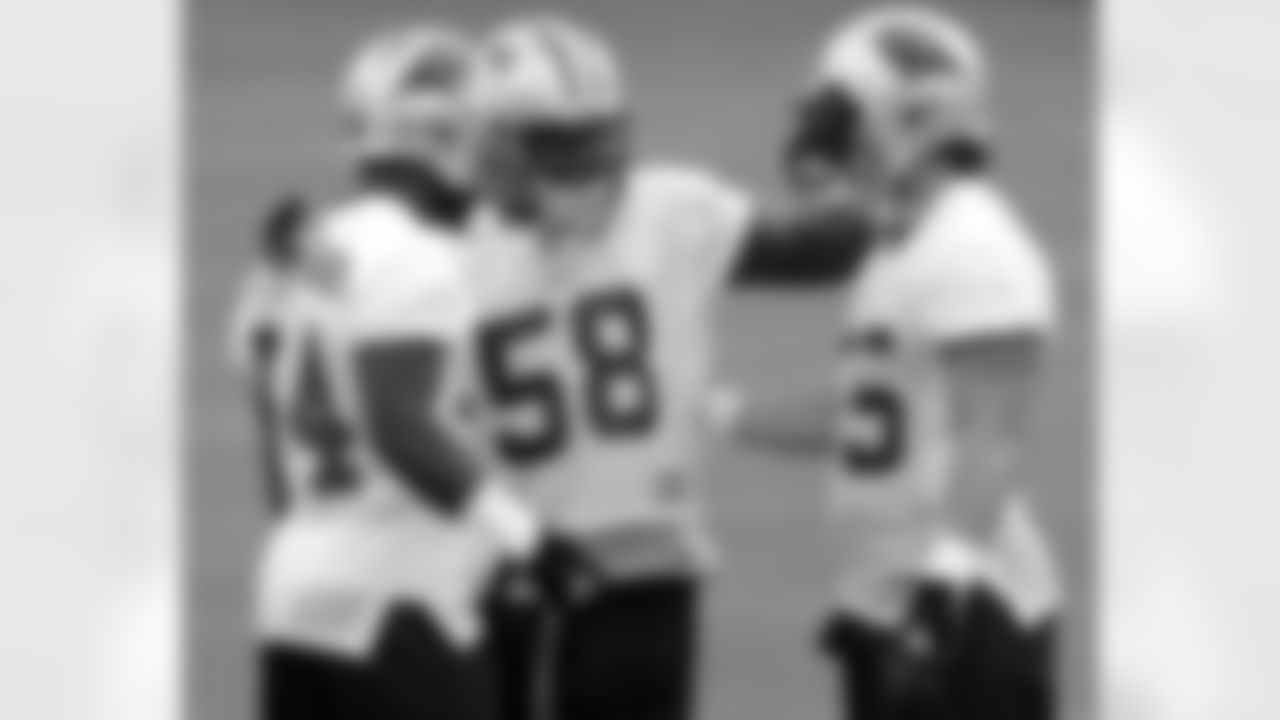
Carolina Panthers linebacker Mark Fields (58) jokes with teammates Dan Morgan (55) and Will Witherspoon (54) during the team's minicamp in Charlotte, N.C., Monday, June 14, 2004.
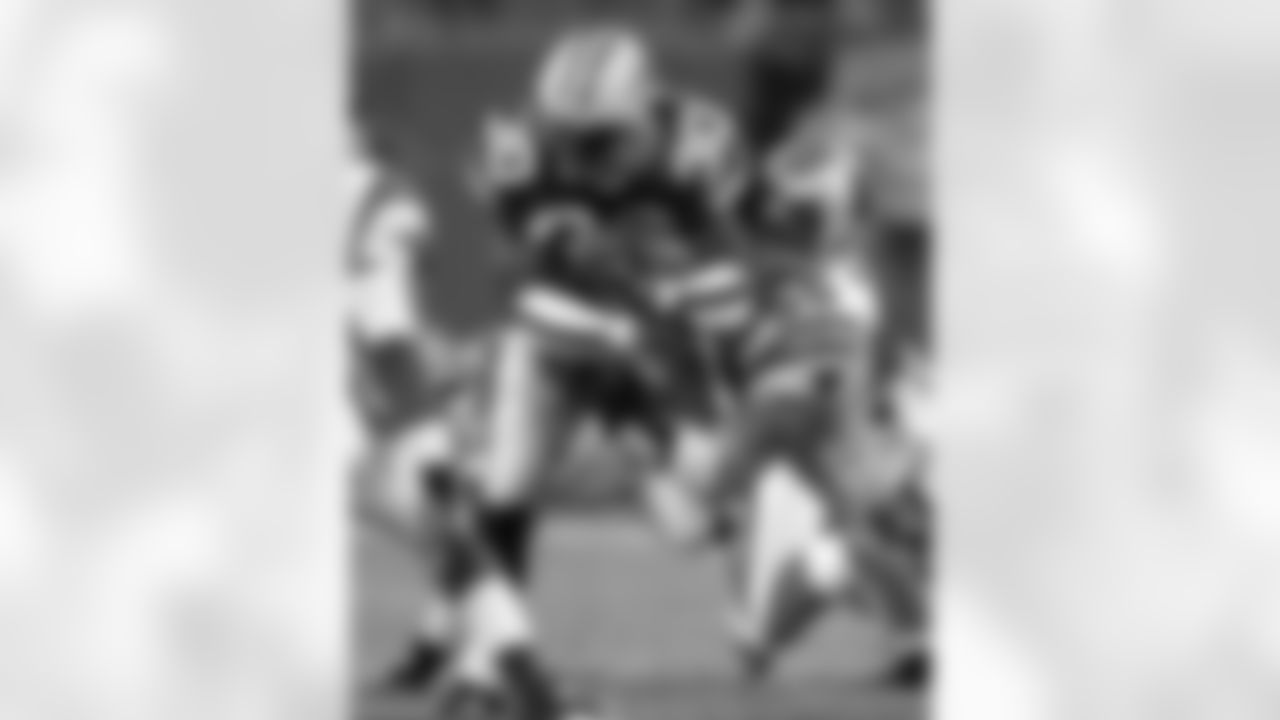
Green Bay Packers' Ahman Green (30) is tackled by Carolina Panthers' Dan Morgan (55) after a short gain in the first quarter in Charlotte, N.C., Monday Sept. 13, 2004. (AP Photo/Chuck Burton)
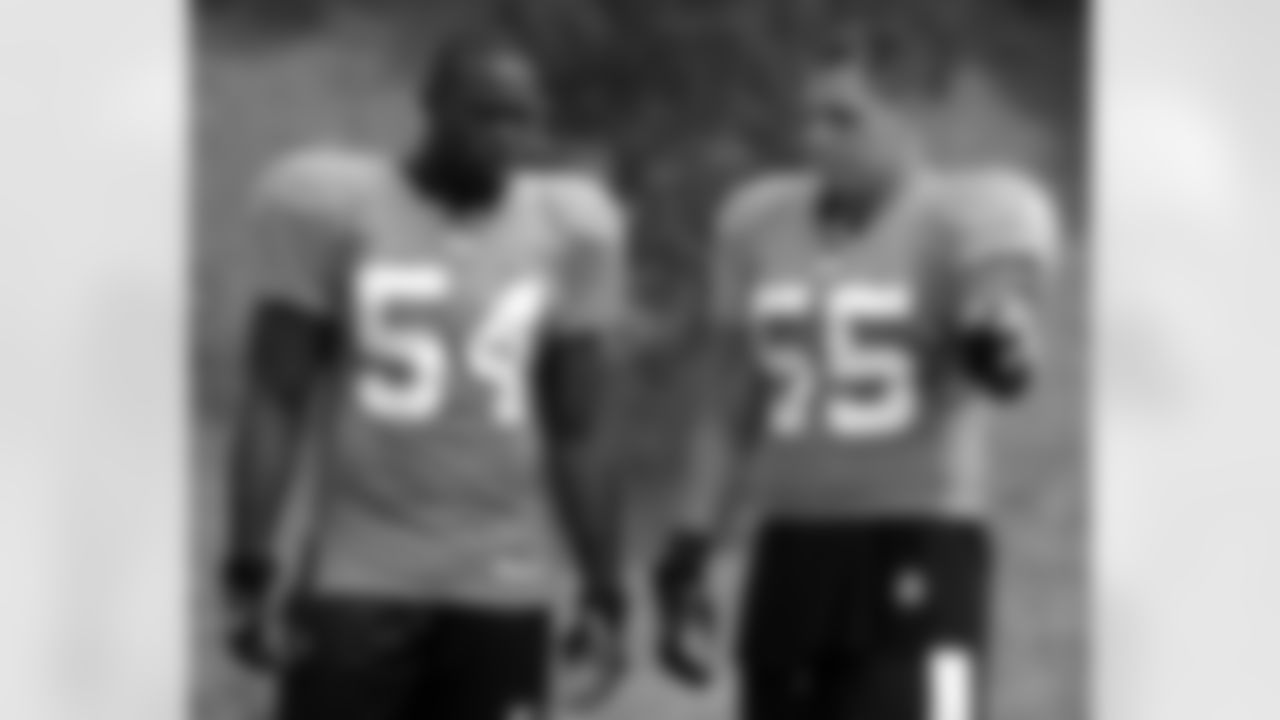
Carolina Panthers linebackers Dan Morgan (55) and Will Witherspoon (54) talk during training camp in Spartanburg, S.C., in this Aug. 3, 2005 file photo.
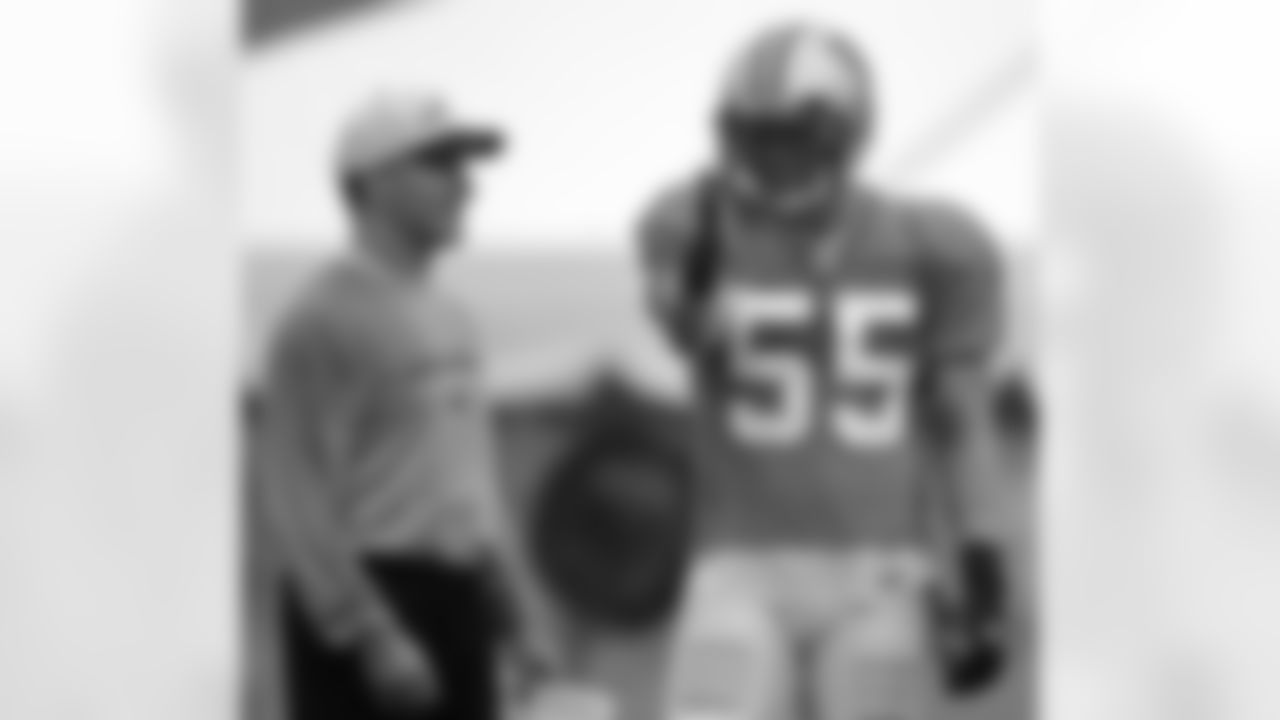
Carolina Panthers' Dan Morgan (55) talks with assistant special teams coach Tony Levine, left, during practice at the NFL football team's training camp in Spartanburg, N.C., Saturday, July 28, 2007. (AP Photo/Chuck Burton)
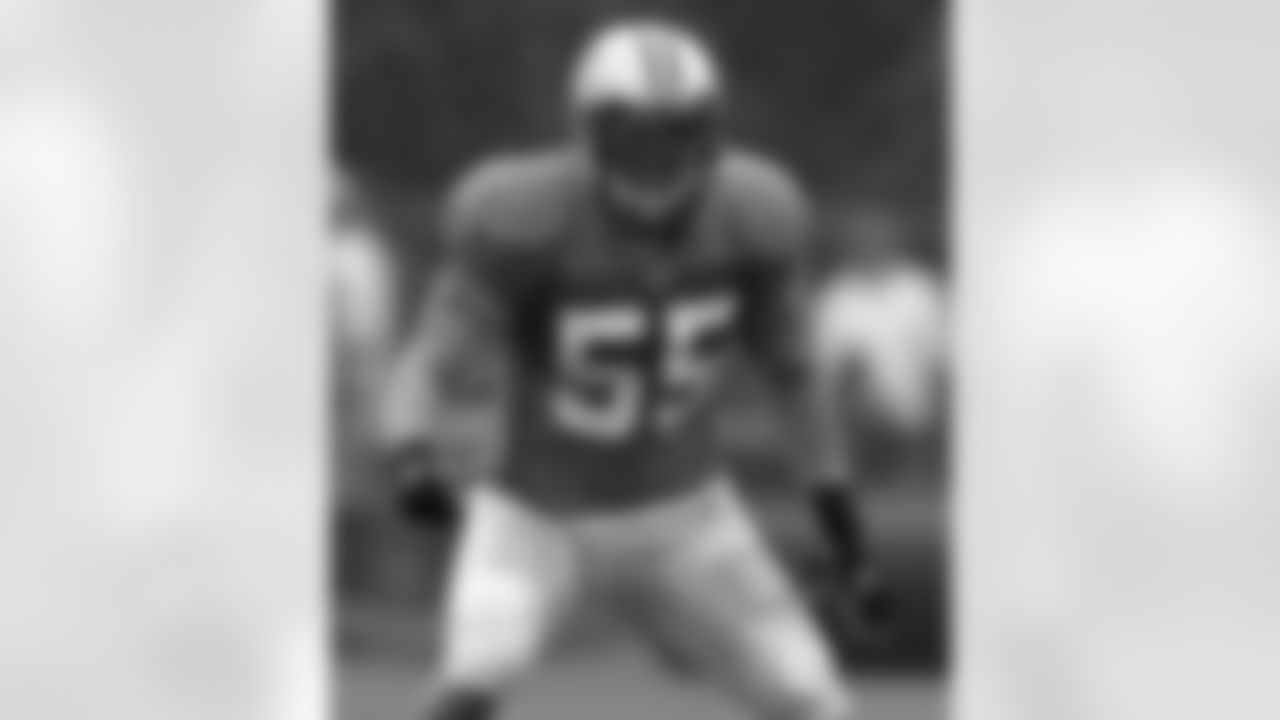
Carolina Panthers' Dan Morgan lines up during a drill at practice during the NFL football team's training camp in Spartanburg, S.C., Saturday, July 28, 2007. (AP Photo/Chuck Burton)
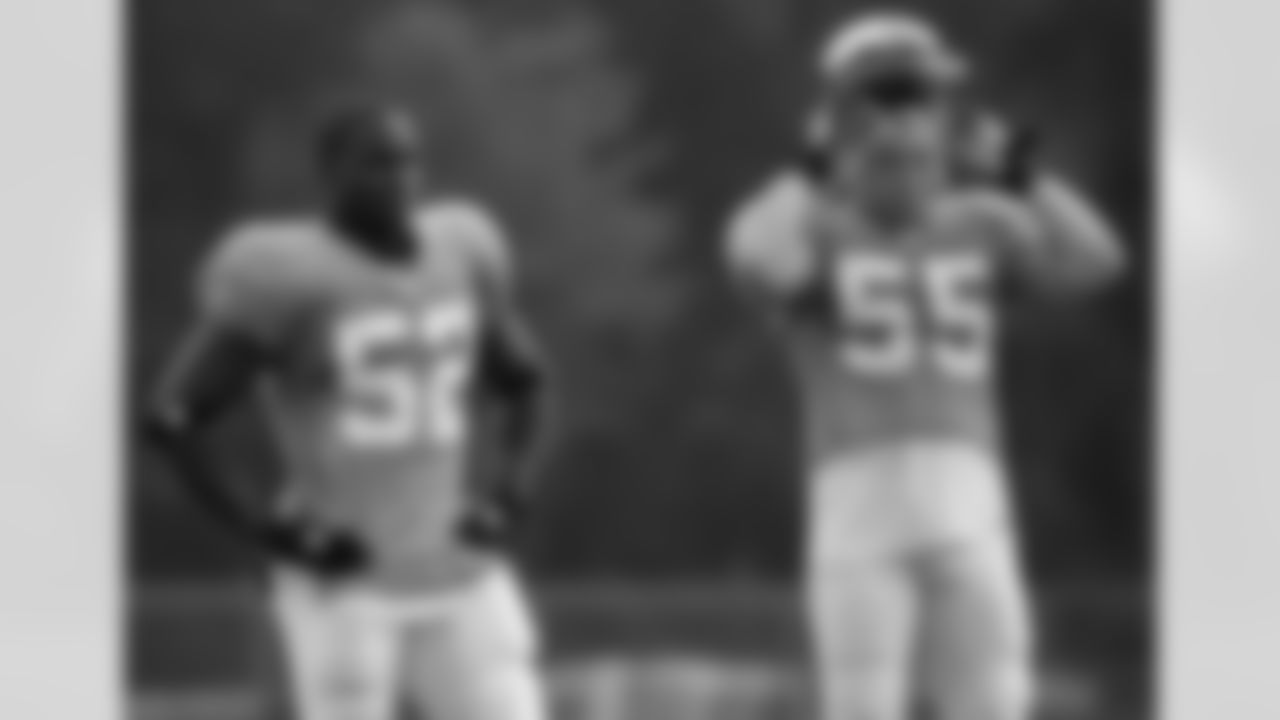
Carolina Panthers linebackers Jon Beason, left, and Dan Morgan, right, look on at practice during the NFL football team's training camp in Spartanburg, S.C., Monday, Aug. 6, 2007. (AP Photo/Chuck Burton)
